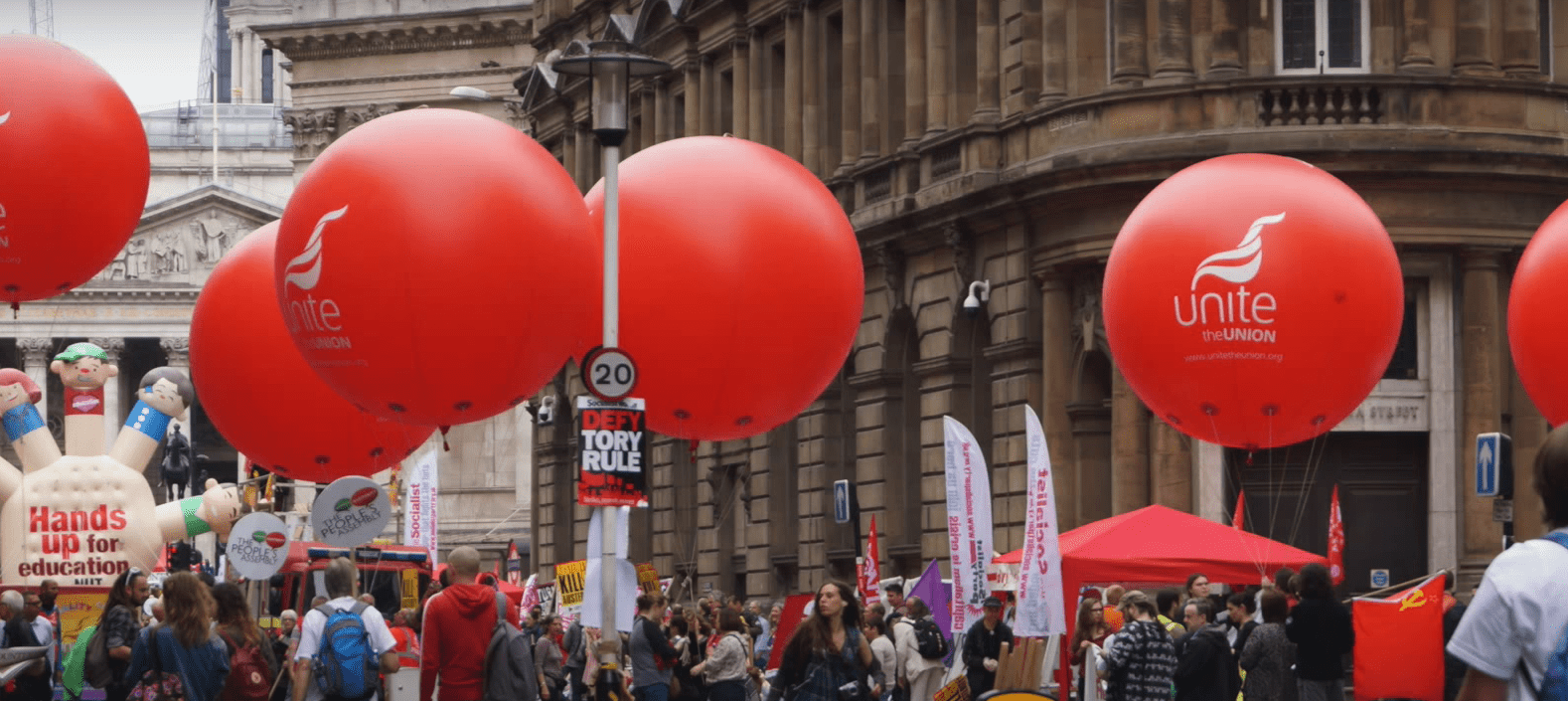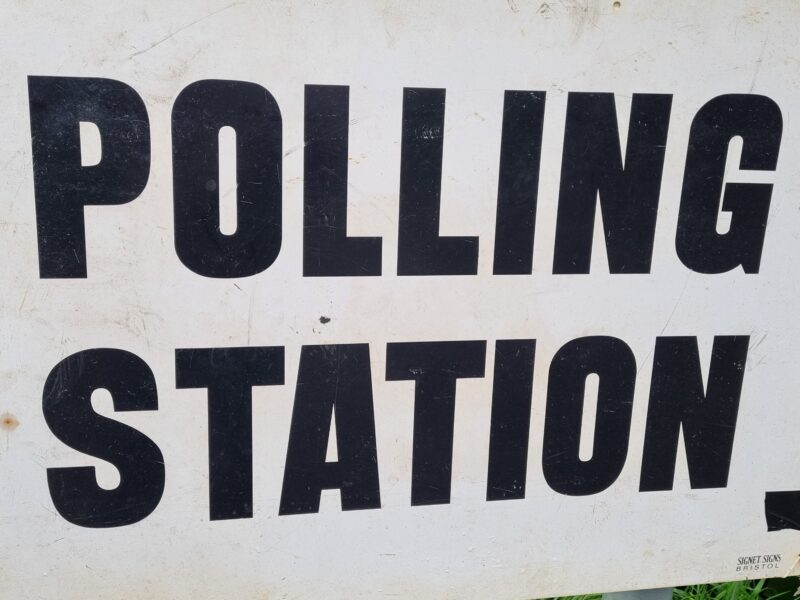The Labour Party conference opens in Brighton this Saturday, and with the right-wing firmly in control of the leadership and the party bureaucracy, they are intent on using their domination in furthering their own factional interests. But in the coming months it might be the affiliated trade unions, and not a narrow cabal of right-wing leaders, who will determine the trajectory of the party.
By the undemocratic banning of some left groups in the party and the introduction of novel rules, the neo-Stalinists at the top of the party have ‘auto-expelled’ dozens, if not hundreds of party members on spurious grounds, including the absurdity of retrospective rule-breaking. The hard right of the Party, barely different to the ‘one- nation’ wing of the Conservative Party, will not rest until Labour’s membership is significantly purged of its radical elements, even if that risks the destruction of the party itself. It has always been the case that rightwing Labour MPs and councillors in safe seats would rather have a Tory government than a radical Labour government that might threaten their comfortable careers.
But in the coming months, beginning with the conference that opens this weekend, it will be the affiliated trade unions that will have the decisive say in the direction taken by the Labour Party. From its foundation over a century ago, it has been the trade unions who have been the real foundation of the Party, in most years providing the bulk of its income. The central position of the trade unions has always been resented by Labour’s right wing, who would be more than happy to break the historic link.
Fight to defend living standards and jobs
They will resent even more the direction that the trades unions are now being forced to take because of the growing insecurity and the squeeze on the living standards of their millions of members. Sharon Graham, newly elected general secretary of Labour’s biggest affiliate, Unite, has made it clear that she and her union membership will not wait for a Labour government before they fight to defend living standards and jobs.

This week, beginning Tuesday, Unite members employed by the giant Weetabix multinational are beginning a strike against company plans to fire and re-hire workers on lower pay. According to the union, the new terms being offered will mean that workers will lose up to £5,000 a year. “Unite’s members at Weetabix will not accept being fired and rehired”, Sharon Graham said, “Unite will fight to defend our members affected by this disgraceful practice”. Last year, she pointed out, Weetabix’s profits went up by almost 20% to more than £81 million.
Unite members at Stagecoach, based in Chesterfield are also balloting for strike action over a pay claim. Last week, the union confirmed that seventy of its members working on offshore oil rigswill also be balloted for industrial action. This dispute relates to a contractor, Petrofac, reducing wages by 10 per cent in 2020 and introducing a one week ‘clawback’ which effectively means working an extra week without any increase in wages.
Unite is also making noises about a government proposal to soften the regulation on hours that can be driven by lorry drivers, possibly meaning longer permitted hours of driving in any one week, with shorter statutory rest breaks,
“Workers feel they have had enough”
Meanwhile, in an interview with the Guardian (September 12), Christina McAnea, the new general secretary of Labour’s second-largest affiliate, Unison, suggested that 2021 could be “the year of industrial action over pay”. She warned that “workers ‘feel they have had enough’ with low wages, a national insurance rise and universal credit cut after working hard during the pandemic”.
In advance of last week’s Trades Union Congress, McAnea called on Keir Starmer to put forward a “bolder” plan of his own on social care. Unison was Keir Starmer’s biggest union backer in his leadership campaign and McAnea is, according to the interview, pressing him to “go further” and “pledge an end to the profit-making in the sector”.
Talking about union members and Unison members in particular, McAnea pointed out that “people feel they have had enough, particularly on the back of the pandemic, when they have put so much in in the past 18 months to be rewarded or recognised for what they’ve done with so little is shocking and just an insult to people”.
In Scotland, Unison members in local government are now balloting for industrial action in selected sectors, for a decent pay rise. On this ballot, McAnea told the press, “Council workers have gone above and beyond to keep services and schools running throughout the pandemic. They went to work, so others could stay at home…These workers, mostly women, are among the lowest paid in the country and have seen their pay drop substantially in recent years”.
Workers in social care “deserve £15 an hour”
Then there is the GMB, Labour’s third biggest union affiliate. Its national officer, Rachel Harrison, in relation to her union members in adult social care reacted to the government’s so-called social care tax in these terms:
“Adult social care desperately needs proper funding – and wherever that new investment comes from it must include ring-fenced cash to improve the pay, terms and conditions of carers to reflect the skilled and valued job they do”
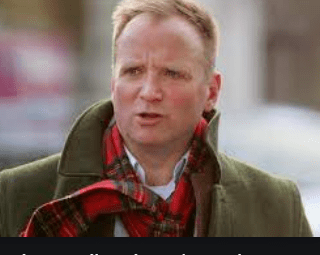
Rachel Harrison did not echo the general secretary of Unison, who called for the elimination of profit from the social care sector – effectively a call for care homes to be publicly owned – but she certainly upped the ante on pay. “The largely women workforce in social care”, she said, “deserve no less than £15 an hour.”
Gary Smith, GMB general secretary, another new post-holder, said in an interview that his union was going to review its financial donations to Labour nationally. “Across the piece”, he said, “there is a feeling among people that the party has drifted away and hasn’t talked about jobs and the real world experience of ordinary people”. One of the union’s regions, London, has already ceased all payments to the Labour Party because of the disgraceful attitude of Islington Labour council in victimising a caretaker, one of its members.
The point of this Cook’s Tour of union activities and pronouncements from leaders is not to suggest that there has been a significant change in the outlook and character of union leaders in the last year, although there has been some. It is to rather that these union leaderships are being forced into greater activity, and inevitably more militant activity, by the growing pressure of their own membership.
Insulted by miserable pay offers
There is hardly a group of workers anywhere in the country that does not face a squeeze on their living standards. Local authority workers, transport, retail, NHS and care workers – those who bore the brunt of working on through the Covid pandemic – have been insulted by miserable pay rises, below the rate of inflation. And that was before higher taxes through NI contributions. Many groups of workers are facing a new epidemic – an epidemic of firing and rehiring at lower rates of pay.
While billionaires continue to dodge taxes on a monumental scale, and have enriched themselves during the pandemic, it is workers who are being asked – and will increasingly be asked – to shoulder the burden of the pandemic and its associated economic crisis.
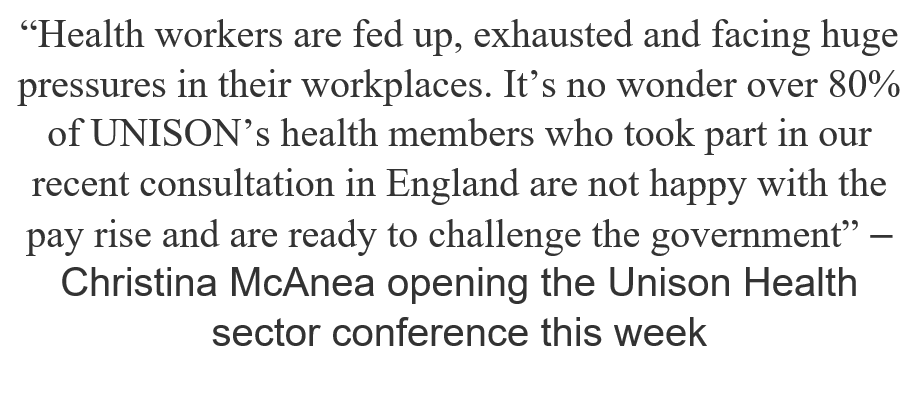
It is inevitable, as sure as night follows day, that the pressure on union members will be reflected in the activity and outlook of trade union leaders and officers, whatever may be their personal inclinations. Even right-wing unions, like Labour’s fourth largest affiliate, USDAW, will feel the pressure to fight more for their members.
Wind of change blowing through the unions
It is the wind of change blowing through the trade union movement that will be decisive in Labour politics for the foreseeable future. Something that Labour’s right wing, and not a few ultra-lefts, do not understand, is that the economic and social imperative will drive a shift in consciousness among millions of workers and for many of them their aspirations will be refracted through the prism of their unions.
In the face of increased struggles over wages and conditions, the right-wing of the Labour Party have little to say and even less to offer. Keir Starmer may have committed himself to an immediate £10 an hour minimum wage when Labour comes into office – and even that was a speech tailor-made for the TUC – but in reality, he is setting a miserably low bar.
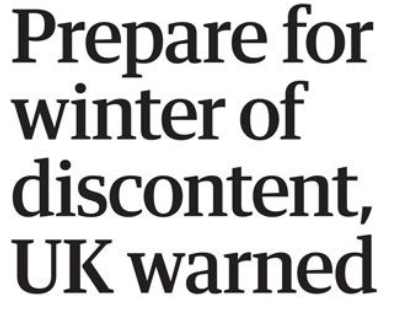
By the time Labour comes into office, it is likely that the national minimum wage will be £10 an hour anyway and many unions are already going beyond it. (As an aside, the USDAW website still references the 2017 Labour manifesto commitments, although that is clearly a case of a failure to update, rather than a commitment to the Corbyn agenda).
Leadership dragging its feet on all policy issues
When it comes to Labour’s policy on low pay, rent controls, Universal Credit, fire-and-rehire, zero-hours contracts – on all these issues, the Labour leadership is dragging its feet. But those same feet will be held to the fire by the trade unions affiliated to the party.
The usual rotten compromises made by trade union general secretaries at the (unminuted) meetings of the Trade Union and Labour Party Liaison Organisation (TULO) may not be as easy as they have been in the past. Too often, horse trading within TULO at the Party conference has delivered a near unanimous union vote which, with its 50% weighting, makes the CLP votes almost irrelevant. But such deals may no longer so easy, be it on policy or on constitutional change, and that will not be to the liking of the right wing. The destructive ambitions of Labour’s right wing may yet be thwarted.
The concrete issues that impact on the daily lives of working people are likely to dominate policy discussion inside the party, not because the leadership are comfortable with it – on the contrary, such debate exposes its shortcomings – but because the trade union membership will demand it. The same membership will push Labour policy towards concrete commitments and policies that carry meaningful reforms and benefits for workers, and the result may be a lot nearer to the manifesto commitments of 2017 and 2019 that the leadership ever planned.

